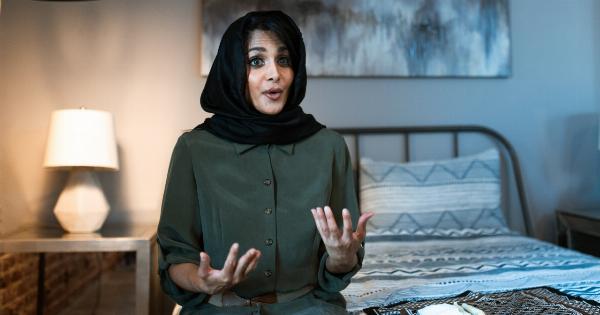One of the most common stereotypes in our society is the idea that women should marry men who are older than them. However, times have changed and the trend of women marrying younger men has been increasing in recent years.
This has raised many questions about the impact of age gaps in relationships, especially with regards to the lifespan of women. In this article, we will discuss the possible effects of marrying a younger man on a woman’s lifespan.
What the research says?
Some studies have found that women who marry younger men tend to live longer than those who marry men of the same age or older.
One such study carried out in Denmark found that women who were married to younger men had a higher life expectancy than those who were not. The researchers also speculated that the reason for this could be that younger men tend to be more active and physically fit, which could be a contributing factor to their partner’s health and well-being.
Another study conducted in the United States also found similar results.
Researchers analyzed data from more than 2.3 million people and found that women who were married to men who were about 7 years younger than them had a lower risk of mortality than those who were married to men of the same age or older.
Psychological Factors
Besides physical factors, there are also psychological factors that could contribute to a woman’s lifespan when married to a younger man.
Studies have shown that women tend to govern the relationship and decision-making in the household when they are married to younger men. This could give them a greater sense of control and autonomy, which could enhance their psychological well-being and contribute to their overall health.
Furthermore, younger men tend to be more open to new experiences and challenges, which could help their partners to stay mentally stimulated and engaged.
This could lead to a lower risk of cognitive decline and dementia, both of which are associated with an increased risk of mortality in older adults.
Social Stigma
Despite the positive aspects associated with marrying a younger man, there is still a social stigma attached to this type of relationship.
Society tends to view women as ‘cougars’ or ‘cradle snatchers’ if they are married to a younger man. This added stress and pressure could affect a woman’s mental health and well-being, ultimately leading to a negative impact on her lifespan.
Health Risks
However, it is important to note that marrying a younger man can also come with some health risks.
Women who are married to younger men may feel pressured to keep up with their partner’s lifestyle and activities, which could take a toll on their health if they are not physically fit or healthy enough to do so.
In addition, younger men may be less likely to notice or acknowledge age-related health problems in their partners. This could lead to delays in seeking medical treatment, which could worsen the prognosis of certain health conditions.
The Role of Culture and Society
It is important to recognize that the impact of marrying a younger man on a woman’s lifespan could be influenced by culture and society as well.
In some cultures and communities, age gaps in relationships are frowned upon, which could lead to social isolation and ostracism of women who are married to younger men. This added stress and pressure could affect a woman’s mental health, leading to a negative impact on her lifespan.
Conclusion
In conclusion, there is evidence to suggest that marrying a younger man could have a positive impact on a woman’s lifespan, especially with regards to physical and psychological well-being.
However, there are also health risks associated with this type of relationship, as well as societal and cultural factors that could affect a woman’s lifespan in negative ways. Ultimately, the decision to marry a younger man should be based on individual circumstances and considerations, rather than societal expectations or stereotypes.






























